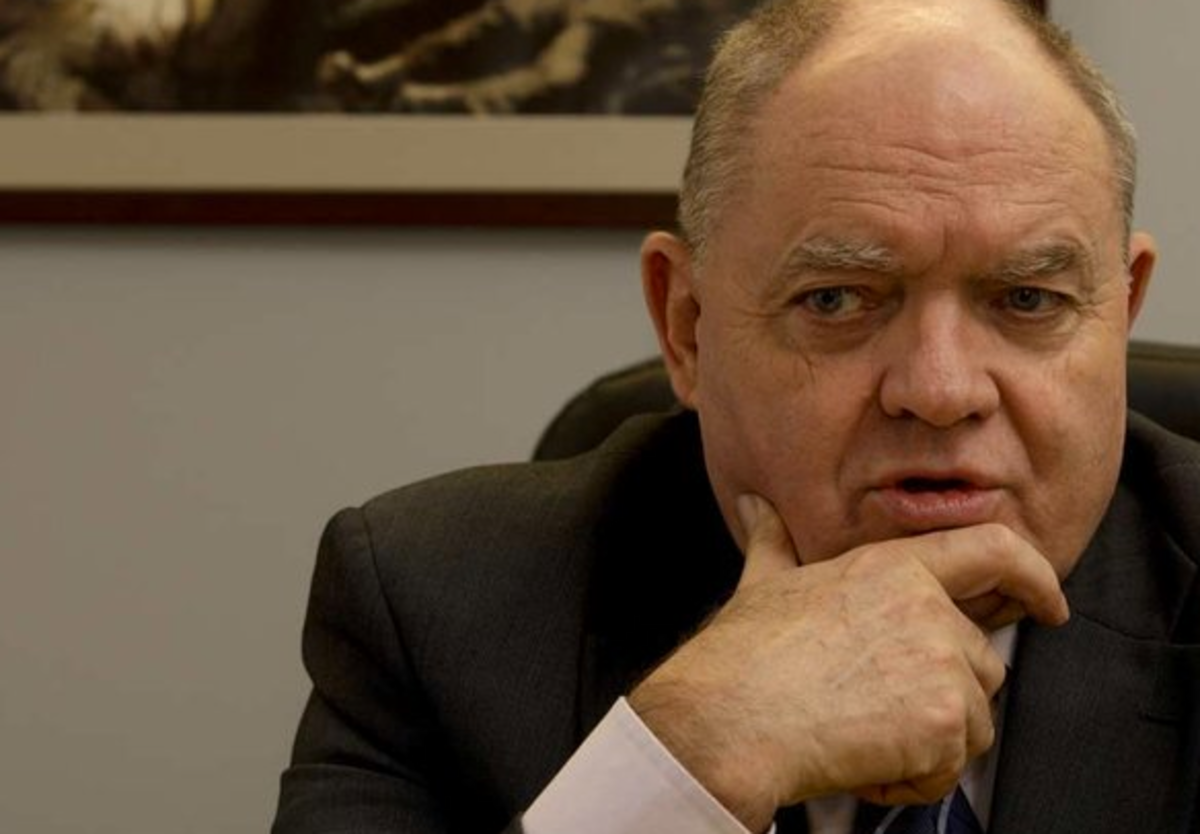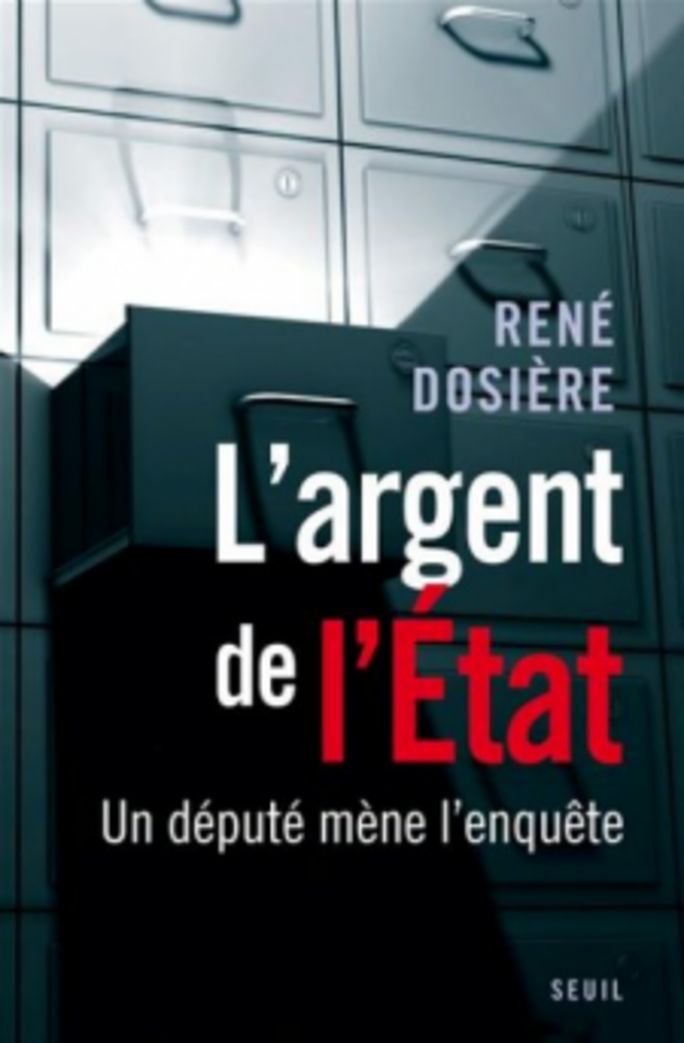Socialist MP René Dosière is a scourge for the French presidency. For almost a decade, he has led a dogged, one-man campaign to track down and call to account the secret and lavish spending behind the closed corridors of power, notably by the presidential office, the Elysée Palace, under both Nicolas Sarkozy and his predecessor Jacques Chirac.
In all, Dosière, 70, who represents a constituency in the Aisne département (county) of north-west France, has sent more than 600 written requests to government officials demanding details of spending within ministries and by the Elysée, many of which were ignored or cleverly miss-answered.
But the MP is not one to let go. After five years of tenacious questioning, he discovered that the cost of the yearly Elysée Palace Bastille Day Garden Party totaled almost half a million euros, leading to its cancellation. He has revealed that the average annual cost to the public purse of a French minister is 17 million euros, while the cost of security arrangements for President Sarkozy’s regular official visits around France comes to an average of 450,000 euros per trip.
This month Dosière published L’Argent de l’Etat (‘The Sate’s Money’), a book detailing the extraordinary hidden spending and perks of the French presidency and government and the continuing lack of accountability, and in some cases probity, of those at the pinnacle of public office. In this interview with Mediapart, he describes how he goes about his self-styled job of ‘investigative’ MP, and the reforms he hopes will be be enacted after this year’s presidential and legislative elections.

Mediapart: Do you receive answers that you consider are just stalling tactics, or even lies?
R.D.: Ministers have an art of the 'non-reply'. I try to go about things so that I can’t be given a half-answer. If, all the same, they give me one, I begin again, pushing harder still. Concerning the Elysée [presidential office] Garden Party, I lodged my first question in 2005, but I had to wait until 2010 to obtain a complete answer.
Things are still unclear about the head of state’s travel costs, notably his flying hours [1]. The defence ministry tell me that, in 2007, over just six months, the French presidency had clocked up 1,313 flying hours. For 2010, it was 1,218 hours. But who exactly is flying, is it the head of state? The presidency’s chief-of-staff? The defence ministry doesn’t detail that in its replies. They should tell me ‘the president flew so many hours, the rest of the time it’s his cabinet staff’.”
Sometimes people lie to me, and I discover that two years too late, when the ministers have gone. It is absurd that the defence ministry had claimed that the head of state’s new plane, 'Air Sarko One', cost 176 million euros when the true total came to 259 million [2].
Finally, while the tradition of ‘notified questions’ [3] exists since 1994, and that no delay in answers has been reported for 15 years, certain questions still remain unanswered. Since about six months, the attitude of the government has worsened. Whereas ministers in theory have ten days to answer, I have a whole list today of ‘notified questions’ that have no replies. It is a form of contempt towards parliament, and it’s unacceptable.
Mediapart : What steps do you believe France’s next president, entering office after the elections in June, should take regarding questions of transparency ?
R.D.: The budget of the Elysée must be made public, that we can get to see the number of flowers bought and have an opinion. François Hollande would have no difficulty in doing this.
Mediapart: Where should spending by the presidency be reduced?
R.D.: I have for a long time hesitated, and I still hesitate today, about giving a judgment over what is spent. Especially because we don’t really have a means of comparison over time [4]. As soon as sums [previously] unknown are revealed, they appear astonishing. One example here: is a daily budget of 11,780 euros on food at the Elysée too much? It seems amazing to me, but I don’t know how many meals are served at the Elysée.
Mediapart : Socialist Party presidential candidate François Hollande has promised to reduce the president’s salary by 30%. Do you consider that to be a priority?
R.D.: The problem for the next president is the separation of public and private spending. Nicolas Sarkozy has begun to make an effort., Thanks to the [French national audit office] Court of Accounts, which identified spending on private running costs, Nicolas Sarkozy refunded the state with 14,000 euros in 2008. That’s a first step. But all the spending within the private apartments of the Elysée should be considered as private, financed by the president: electricity, water, heating, meals. Fixed sums could be envisaged. I don’t understand why this principle doesn’t exist, whilst an apartment there is considered private and while, since 2008, the president draws a salary. It is not an easy distinction to make, but one that is possible.
When the Court of Accounts first inspected the Elysée budget, I sent it, for information purposes, a report by the controller-general of [French-speaking Canadian province] Quebec. [It was] a report on spending by the governor-general, where everything was analysed: one day she went travelling with her security officer while she was not on an official mission, she had a member of her staff brought over for a game of golf. She had to give a refund. In France, we need to make progress over this separation of public and private. Once that’s said, I am not shocked that the president is paid a salary of around 20,000 euros.”
-------------------------
1: When the French president or members of his government use air force planes for travel, the flying time is billed by the defence ministry.
2: The figure of 259 million euros was the estimate provided by the French national audit office, la Cour des comptes.
3: Under a system called ‘notified written questions' (questions écrites signalées) MPs who, after two months, have received no reply to their formal requests for information from government can summon a response, during parliamentary question time, that must be provided within ten days.
4: The first detailed budget report for the presidential office, the Elysée Palace, was established in 2008.
Mediapart: Do you have any details about how many people work for the president’s wife Carla Bruni?
R.D.: No. And we won’t have any. Officially, the spouse of the head of state does not have the right to employ anyone. When I asked the question, I was told ‘All the staff of the presidency are staff of the president’. Some are assigned to Carla Bruni, but I will never be told ‘It’s she who manages them’.
Mediapart: Should the next president clarify this issue? There is already a problem regarding Socialist Party presidential candidate François Hollande’s partner, Valérie Trierweiler, in that she benefits from the services of a PR consultant attached to his campaign HQ, where she also has an office.

R.D.: We have a problem. The spouse of the head of state doesn’t exist [in any official capacity], not even in protocol. But the spouses want to play a role, whether that’s Carla Bruni, [Nicolas Sarkozy’s former wife] Cécilia Sarkozy, Danielle Mitterrand or Bernadette Chirac [1]. They are in an impossible situation. They have no title. So, in my opinion, we must find a solution that would allow the spouse of the head of state to say, officially, ‘On such or such a trip, I represent my husband and I use a presidential plane’. In the same way, they need to have a credit card for expenses linked to their ‘function’; That’s the least of things. It is not a fundamental problem, but it would be simpler to clarify things a little, for the person concerned. It wouldn’t shock me either if she had staff, within a clear framework. The wife of a head of state isn’t any ordinary person. She can have an influence over him.
Mediapart: Concerning ministries now, what official spending deserves to be reduced?
R.D.: The number of staff is too high, never ceasing to increase under the Fifth Republic [2], without counting the clandestine ones, those who are hidden away. Ministers must function in a different manner, working more with their administrations rather than paying themselves cabinets that double up.
Then, the salaries paid within the cabinets, [now] known in detail for the first time, are high. Truly so. Across all the ministries, the average of the three highest-paid salaries reaches 11, 235 euros in net monthly income [3]. The only explanation that is given to us is that advisors are on short-term contracts. True, but that’s no reason to come out with prattle. They often jump from one ministry to another. When they leave, they obtain important posts in the private sector thanks to networks they have created for themselves, and so on. And, after all, one doesn’t work in the public sector to grab money.
Mediapart: Do you feel somewhat alone in your work as an ‘investigative’ Member of Parliament?
R.D.: Other MPs use written questions, [Socialist Party MP] Delphine Batho on [the ordering by the Elysée of] opinion poll surveys, [ruling conservative UMP party MP] Lionel Tardy on the cost of various [inconsequential] committees [4]. The problem is that it’s not enough to simply ask questions. There has to be a follow up, which requires time, availability. It’s true that I feel a bit on my own. I don’t get the impression of any clear hostility, it’s more like indifference. In any case, the Socialist Party [parliamentary] group could have blocked my ‘reported questions’. On the contrary, it has helped me.
Mediapart: Do Members of Parliament actually use the few powers of control that they have?
R.D.: As professor Guy Carcassonne [5] says, parliament has fewer powers than it has MPs. If MPs were present, the powers would be used. But at five- or ten-strong, that doesn’t work. I well see the time that it can take. You have to work . You can’t when you accumulate [different political functions], when you have a civic community to manage.
Mediapart: There is not one chapter in your book about parliament’s spending. Why?
R.D.: I don’t speak about the Senate for reasons of deontology. I defend the autonomy of the Senate, like i defend the autonomy of the [lower house] Assembly. The senate is for the senators to look after. As for the Assembly, I had initially planned to include it in this book but I realized that I could not use the same style as that regarding the executive. The style would have been more like a parliamentary report. That would have lost unity. But I have a project for a book about daily life at the Assembly.
-------------------------
1: The wives of former French presidents François Mitterrand and Jacques Chirac.
2: The Fifth republican constitution of France, established in October 1958.
3: The budget ministry is the most generous employer regarding ministers’ private cabinet staff.
4: In his original comment in French, René Dosière describes these as “comités Théodule”, an expression first coined by General Charles de Gaulle to describe unimportant or useless committees and commissions.
5: Guy Carcassonne is a French university (Paris-X Nanterre) professor specialised in constitutional law who prefaced Dosière's 2007 book on spending by the presidential office, L'argent caché de l'Elysée ('The Elysée's Hidden Money').
-------------------------
English Version: Graham Tearse
- L’Argent de l’Etat, un député mène l'enquête, is published in France by Seuil, priced 19.5 euros.


